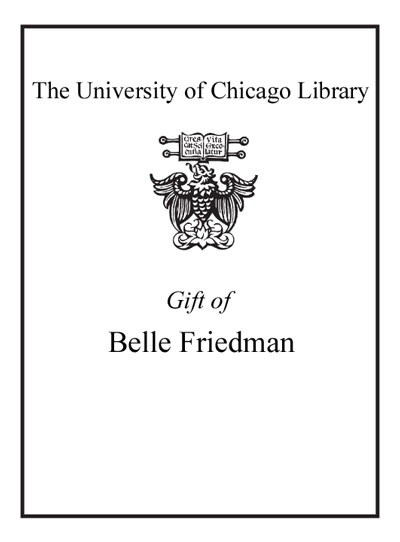|
|
|
|
| LEADER |
00000cam a2200000 a 4500 |
| 001 |
7919771 |
| 005 |
20130320150600.0 |
| 008 |
090831s2010 enka b 001 0 eng |
| 003 |
ICU |
| 010 |
|
|
|a 2010281480
|
| 015 |
|
|
|a GBA986136
|2 bnb
|
| 016 |
7 |
|
|a 015361085
|2 Uk
|
| 019 |
|
|
|a 429024077
|a 527407239
|
| 020 |
|
|
|a 9780230240995 (hbk.)
|
| 020 |
|
|
|a 0230240992 (hbk.)
|
| 035 |
|
|
|a (OCoLC)435731059
|z (OCoLC)429024077
|z (OCoLC)527407239
|
| 035 |
|
|
|a om2775008
|
| 040 |
|
|
|a UKM
|b eng
|c UKM
|d BWKUK
|d YDXCP
|d BTCTA
|d BWK
|d BWX
|d GEBAY
|d EXW
|d UWO
|d VRC
|d CDX
|d LML
|d DLC
|d UKMGB
|d OCLCQ
|
| 042 |
|
|
|a ukblcatcopy
|
| 049 |
|
|
|a CGUA
|
| 050 |
|
4 |
|a Q175
|b .D175 2010
|
| 082 |
0 |
4 |
|a 501
|2 22
|
| 100 |
1 |
|
|a D'Agostino, Fred.
|0 http://id.loc.gov/authorities/names/n85226392
|1 http://viaf.org/viaf/54169571
|
| 245 |
1 |
0 |
|a Naturalizing epistemology :
|b Thomas Kuhn and the 'essential tension' /
|c Fred D'Agostino.
|
| 260 |
|
|
|a Houndmills, Basingstoke, Hampshire [England] ;
|a New York :
|b Palgrave Macmillan,
|c 2010.
|
| 300 |
|
|
|a viii, 216 p. :
|b ill. ;
|c 23 cm.
|
| 336 |
|
|
|a text
|b txt
|2 rdacontent
|0 http://id.loc.gov/vocabulary/contentTypes/txt
|
| 337 |
|
|
|a unmediated
|b n
|2 rdamedia
|0 http://id.loc.gov/vocabulary/mediaTypes/n
|
| 338 |
|
|
|a volume
|b nc
|2 rdacarrier
|0 http://id.loc.gov/vocabulary/carriers/nc
|
| 504 |
|
|
|a Includes bibliographical references (p. 204-213) and index.
|
| 505 |
0 |
|
|a Getting it together -- Essential tensions -- The facilitative possibilities -- The consistent pattern -- Motivating diversity -- A culture of enquiry -- The division of labor in communities of enquiry -- Some communities of enquiry -- Naturalizing the essential tension.
|
| 520 |
1 |
|
|a "Thomas Kuhn identified an essential tension between conservative and innovative approaches in the development of knowledge. Should we stick with the tried-and-tested paradigm which guides enquiry in a particular field? Or should we strike out in new directions to improve our understanding? Kuhn pointed out that these two attitudes are both appropriate. At times of crisis in the development of knowledge, a bias in favor of innovation might be appropriate. During periods of 'normal science', a more conservative approach will predominate. The 'essential tension' is the balance between these attitudes, but Kuhn insists that both are and should always be represented in the community of enquiry. This Kuhnian picture is itself not as familiar as it should be; Kuhn studies were preoccupied for decades with other issues. What the current study adds to this picture is an account of the underpinnings in individual and social psychology of the balancing of these two attitudes. Under what conditions will individuals be motivated to adopt an innovative attitude? Under what conditions will individuals working together on a paradigm be motivated to share their dispersed information relevant to the project of enquiry defined by that paradigm?"--Jacket.
|
| 600 |
1 |
0 |
|a Kuhn, Thomas S.
|0 http://id.loc.gov/authorities/names/n50046179
|1 http://viaf.org/viaf/22144060
|
| 600 |
1 |
7 |
|a Kuhn, Thomas S.
|2 swd
|1 http://viaf.org/viaf/22144060
|
| 650 |
|
0 |
|a Science
|x Philosophy.
|0 http://id.loc.gov/authorities/subjects/sh85118582
|
| 650 |
|
0 |
|a Knowledge, Theory of.
|0 http://id.loc.gov/authorities/subjects/sh85072732
|
| 650 |
|
0 |
|a Social psychology.
|0 http://id.loc.gov/authorities/subjects/sh85123994
|
| 650 |
|
0 |
|a Organizational behavior.
|0 http://id.loc.gov/authorities/subjects/sh85095524
|
| 650 |
0 |
7 |
|a Wissenschaftstheorie.
|2 swd
|
| 650 |
0 |
7 |
|a Paradigmenwechsel.
|2 swd
|
| 650 |
0 |
7 |
|a Naturalismus (Philosophie)
|2 swd
|
| 650 |
0 |
7 |
|a Erkenntnistheorie.
|2 swd
|
| 600 |
1 |
7 |
|a Kuhn, Thomas S.
|2 fast
|0 http://id.worldcat.org/fast/fst00015867
|0 http://id.worldcat.org/fast/15867
|1 http://viaf.org/viaf/22144060
|
| 650 |
|
7 |
|a Knowledge, Theory of.
|2 fast
|0 http://id.worldcat.org/fast/fst00988194
|
| 650 |
|
7 |
|a Organizational behavior.
|2 fast
|0 http://id.worldcat.org/fast/fst01047801
|
| 650 |
|
7 |
|a Science
|x Philosophy.
|2 fast
|0 http://id.worldcat.org/fast/fst01108336
|
| 650 |
|
7 |
|a Social psychology.
|2 fast
|0 http://id.worldcat.org/fast/fst01122816
|
| 903 |
|
|
|a HeVa
|
| 929 |
|
|
|a cat
|
| 999 |
f |
f |
|i 2333de37-1f6c-5af4-9097-5fa9d6a233a2
|s 94ca4e1d-705a-5bcc-9a8f-908d94e74d02
|
| 928 |
|
|
|t Library of Congress classification
|a Q175 .D34 2010
|l JCL
|c JCL-Sci
|i 5582901
|
| 927 |
|
|
|t Library of Congress classification
|a Q175 .D34 2010
|l JCL
|c JCL-Sci
|e BELL
|e CRERAR
|b 092461438
|i 8711451
|


